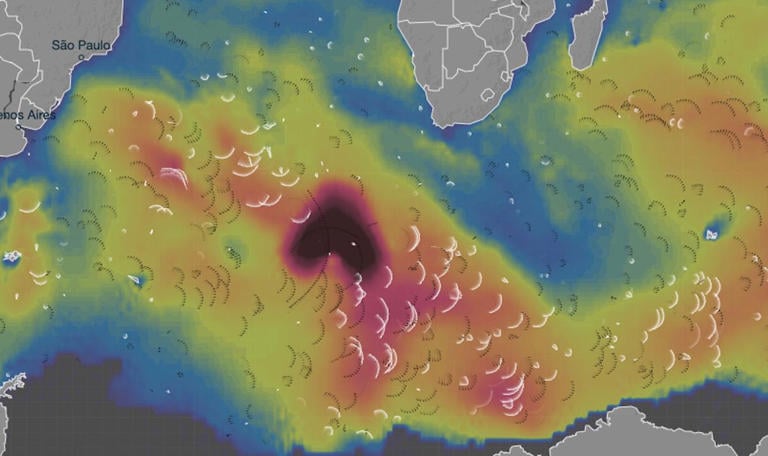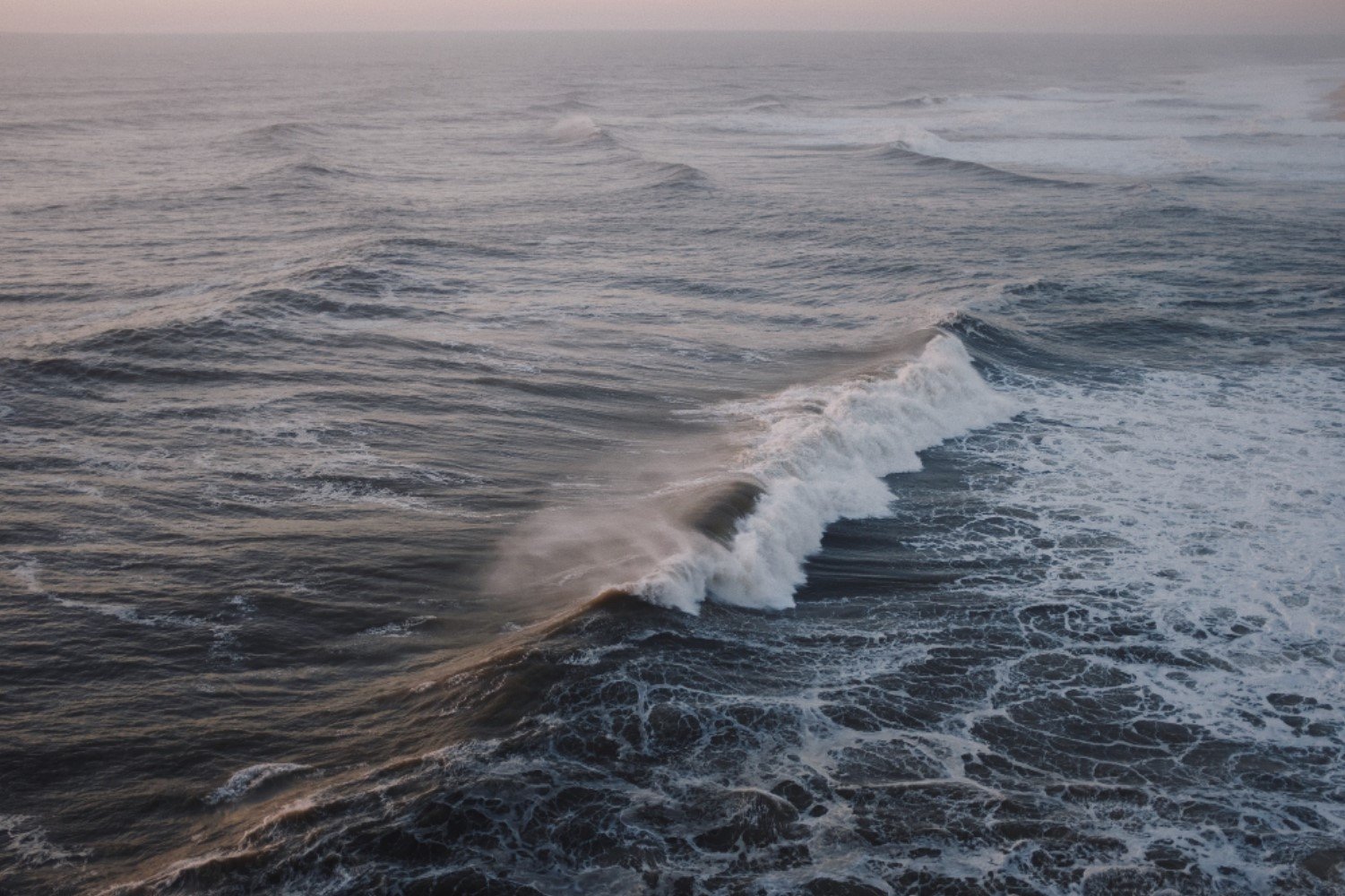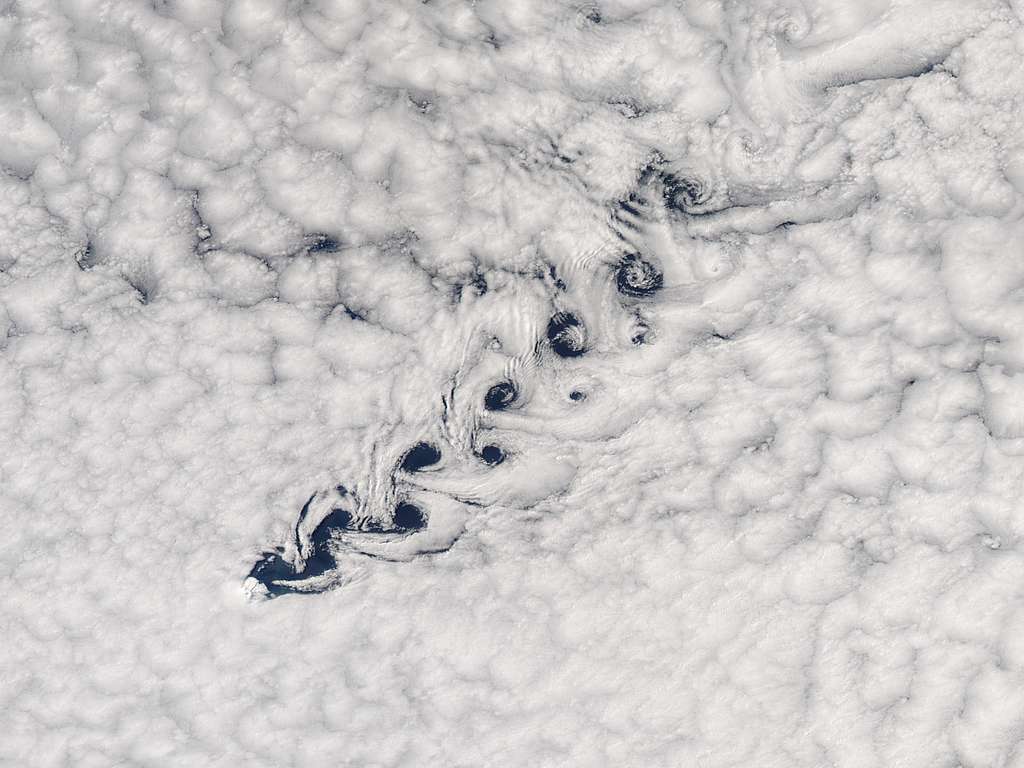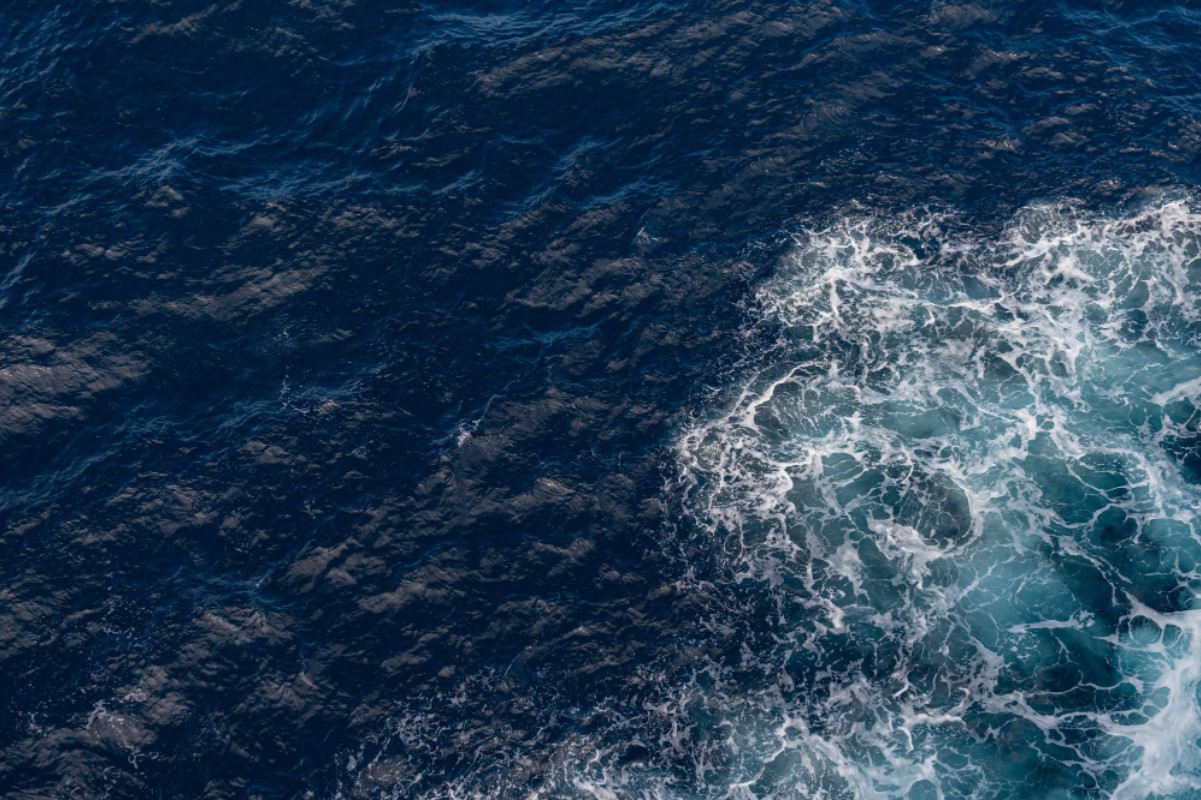Mystery of The Southern Atlantic Wave Anomaly Deepens
A wave anomaly captured by a weather-mapping system has sparked a global mystery. This giant cluster of waves moving through the ocean for 24 hours has some online sleuths claiming it proves the existence of aliens.
But what was this wave anomaly, and what do the researchers behind the weather-mapping system have to say about this rare environmental event?
The Texas-Sized Blob Appears
On April 11, a giant cluster of waves over 80 feet high, spanning 2,000 miles or just bigger than the size of Texas, appeared to move through the ocean off the coast of Africa.

Source: Ventusky
The waves lasted about 24 hours before vanishing off of the weather-mapping system, Ventusky. Some online commentators suggested that something moving under the surface of the sea could have created the formation.
The Blob Appears on the Ventusky App
Ventusky, a meteorological app run by the Czech company InMeteo, picked up the wave anomaly. The app allows users to observe weather patterns, winds, and waves through real-time data collected from respected international sources.

Source: Freepik
“We have created an entirely new system of displaying waves. Through the use of animated arcs, our visualization clearly differentiates the direction of movement and height of both wind waves and swells,” Ventusky’s website reads.
The Anomaly Only Appeared on Ventusky
The graphic that has been in circulation on social media shows the unusual sea activity near the African coast.

Source: Muffin Creatives/Pexels
Ventusky’s weather-mapping system captured the anomaly, yet no reports about unusual activity came from the coast, ships in the sea, or aerial activity.
Speculations About the Blob
Online users have shared a graphic of the incident, sparking numerous jokes about Godzilla and theories about unidentified submersible objects (USOs).

Source: Freepik
Hundreds of thousands of viewers flocked to social media platforms to weigh in on the conversation, dubbing it “The Blob Anomaly.”
Ventusky Joins the Conversation
The weather-mapping system even weighed in on the conversation, jokingly referring to claims made by others that the anomaly showed “UFOs or Atlanteans launching from the ocean” in a post on X, formerly Twitter.

Source: Andrea Piacquadio/Pexels
However, a spokesperson from Ventusky said that “The Blob Anomaly” was nothing more than video manipulation caused by a “model error.”
Ventusky Clears Up the Confusion and Conspiracy
“It seems to be addressing an error in the model that was previously refuted,” the spokesperson said to Newsweek. “But the error is no longer there and the current model is fine.”

Source: Mathias Reding/Pexels
The Ventusky spokesperson stated, “The error originated in the model itself, so it also reflected in the visualization on our website.” In this case, the model is from the German Meteorological Service (DWD), with whom we are in contact and they have already resolved this error.”
How This Glitch Happened
The Ventusky spokesperson also states that the model receives millions of data points throughout the day, and glitches in the system are bound to happen.

Source: Petty Officer 3rd Class Taylor Jackson/Wikimedia Commons
“Please note that the model receives millions of data points from ships and buoys throughout the ocean. Problems can occur in such a large database. However, it may take time to determine the exact cause of this error,” the spokesperson said.
Ventusky Didn’t Pick Up This Odd Pattern
The video, which went viral on Reddit, also referred to several other odd meteorological patterns near Bouvet Island, a volcanic island in the South Atlantic Ocean. People often refer to this island as the most remote island on the planet.

Source: Freepik
Other meteorological data apps appear to have captured these, not the Ventusky app.
The Odd Patterns Were a Natural Phenomenon
Professor Roy Grainger, a reader in Atmospheric Physics at the University of Oxford, says that these patterns appeared to be examples of vortex shedding (via Newsweek).

Source: Public Domain/Flickr
Vortex shedding is a natural phenomenon that occurs when air or water flows around an object, creating a fluctuating, oscillating pattern of force behind it.
What Vortex Shredding Does
“[It’s] basically rotational circulation downwind of the island that you see in the clouds,” Professor Grainger told Newsweek.

Source: Wikimedia
Grainger continued: “The ripples downwind of the island (you also see in the clouds) are the much more common lee-waves.”
Ventusky’s App Is Bound to Encounter Problems (For Now)
Ventusky is the first app to capture tides and ebbs on this large of a scale. This app is bound to have some glitches as it figures out how much data it can intake to present accurately.

Source: Freepik
On the Ventusky website, you can also find dozens of other layers related particularly to the development of weather in the atmosphere.
